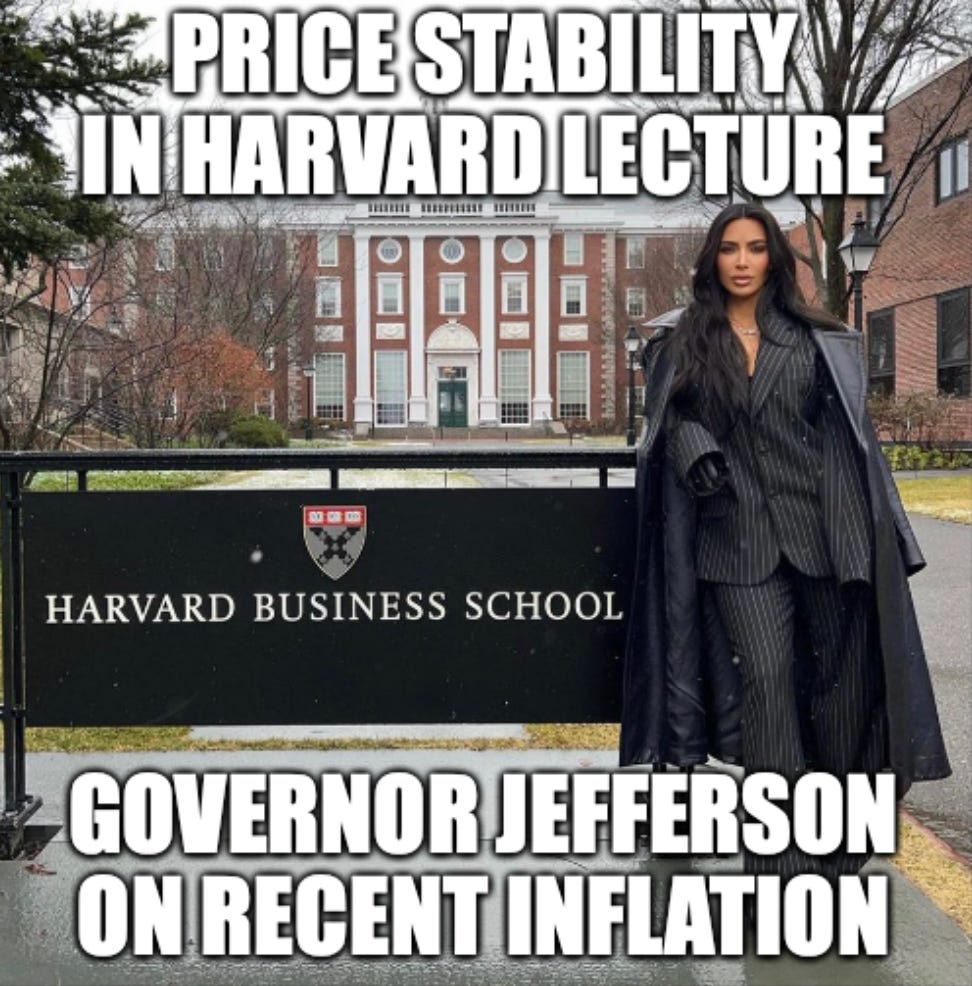A.I. Summarizes a Speech by Governor Jefferson on Recent inflation and the Dual Mandate
Federal Reserve Board Governor Emphasizes Importance of Price Stability in Harvard Lecture on February 27, 2023
Philip N. Jefferson (not Kim), a member of the Board of Governors of the Federal Reserve System, gave a lecture on economics at Harvard University on February 27, 2023.
During his lecture, he discussed various aspects of the economy
Including the PCE price index and the CPI, which use different weighting systems to estimate expenditure shares.
Jefferson also mentioned that the CPI excludes all food prices, while the core PCE price index excludes food bought for consumption at home.
He discussed the influence of monetary policy, such as geopolitical developments associated with fluctuations in energy prices, weather, disease, or war.
(more after the bullish and bearish points)
Bullish points
Price stability is a desirable objective, and the Federal Reserve has had it as a formal part of its mandate since 1977.
The Federal Reserve set a formal inflation target in 2012 to help households and businesses understand the goal and keep inflation expectations anchored over time.
There is a broad consensus among economic researchers and policymakers that price stability is a desirable objective.
The Fed must jointly achieve price stability and maximum employment to fulfill its dual mandate.
Bearish points
PCE price index and the CPI use different weighting systems, leading to some differences in expenditure weights that can at times be important.
There are indications that housing services inflation will soon decline.
Deviations from price stability in the form of persistently elevated inflation rates are costly for the economy.
An inflationary environment may distort portfolio and investment decisions.
High unanticipated inflation lowers workers' real wages.
The summary of the speech
Jefferson noted that housing services prices are estimated using information on rents and measure the price that renters pay and homeowners would pay to live in their homes. While there has not been a decline in housing services inflation, indications suggest that it may soon decline.
One of the two goals assigned to the Federal Reserve by law is price stability. Jefferson emphasized that there is a broad consensus among economic researchers and policymakers that price stability is a desirable objective, and that deviations from price stability, in the form of persistently elevated inflation rates, are costly for the economy. An inflationary environment may distort portfolio and investment decisions, including through the treatment of after-tax capital gains.
In 2012, the Federal Open Market Committee (FOMC) set a formal inflation target to help households and businesses understand the Fed's goal and keep inflation expectations anchored over time. The Fed has had price stability as a formal part of its mandate since 1977, and the 2 percent inflation objective set in 2012 formalized judgments that the Committee had already made about the appropriate inflation rate.
The Fed must jointly achieve price stability and maximum employment to fulfill its dual mandate. Jefferson noted that in rejecting a 4 percent inflation target, Ben Bernanke suggested that inflation would be higher and probably more volatile under such a policy.
Jefferson concluded his lecture by emphasizing that low inflation restricts the FOMC's scope to lower real interest rates, while high unanticipated inflation lowers workers' real wages.





